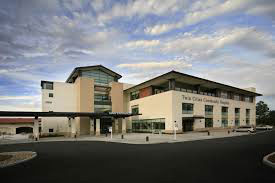Unearthed Data Offered by National Litigators Shows a Corporate Flooding of American Communities
Cleveland – Today, the Plaintiffs’ Executive Committee (PEC) in the National Prescription Opiate Litigation (NPOL) are helping officially release updated federal opioid pill data to the American people that was previously only available to federal agencies. Covering 2013-2014, the data shows that opioid industry distributors and pharmacies unleashed an additional 24 billion pain pills into communities across the country. This newly released information, combined with previous data showing the spread of 76 billion pain pills between 2006-2012, means that more than 100 billion individual pills flooded America during a nine-year span.
The ARCOS dataset showing where and when the 100 billion pills were unleashed on the country is available here:https://www.slcg.com/.
Paul J. Hanly Jr., of Simmons Hanly Conroy, and Paul T. Farrell Jr., of Greene Ketchum, Farrell, Bailey & Tweel, LLP and Joe Rice of Motley Rice LLC; the co-leads of the MDL said:
“Nine years, 100 billion opioid pills. With this combined data, the American public can see with open eyes the true scope and scale of a corporate-fueled, man-made, and generation-threatening epidemic. For the companies responsible for this stark number, the companies that seemingly found no issues with ballooning their bottom lines while burying our country under a mountain of opioids, there’s no more room to ignore the truth and hide the facts. Through litigation, we have been uncovering a corporate playbook that we will show led directly to the worst public health epidemic of our modern era.
Today, the public has full online access to two additional years of ARCOS data, which show how the opioid industry unleashed prescription opioid pills into American communities over nine years from 2006 – 2014. Everyone in the United States can now see exactly when and where these addictive drugs were poured into their hometown.
“The American people deserve transparency and accountability. In 2020, we will be leading both those fights on behalf of the more than 2,500 communities we represent.
Since 1971, the U.S. Drug Enforcement Administration (DEA) has managed a system to monitor the flow of controlled substances, like opioids, called ARCOS (Automation of Reports and Consolidated Orders System). As part of the nationwide opioid litigation, the PEC was tasked by U.S. District Judge Dan Polster to compile and make available the ARCOS data to governmental entities that are involved in the opioid litigation. The PEC contracted a third party firm to convert the data into a usable format that helps litigating communities and the general public unlock insights into how the opioid crisis unfolded.
ARCOS is a reporting system monitoring the flow of DEA-controlled substances from their point of manufacture through commercial distribution channels to point of sale or distribution at the dispensing/retail level to include hospitals, retail pharmacies, practitioners and teaching institutions.
Through the work of the MDL, the DEA produced a subset of ARCOS data reflecting transactions in opioid drug products resulting in 500,709,803 transaction records. For the data to be useful, the PEC hired an objective, unaffiliated third party to process, validate, and augment the opioid ARCOS data to make it navigable by approved parties. Pursuant to the request to the DEA and order of federal Judge Polster, the native unprocessed ARCOS data is also available in the database.
















